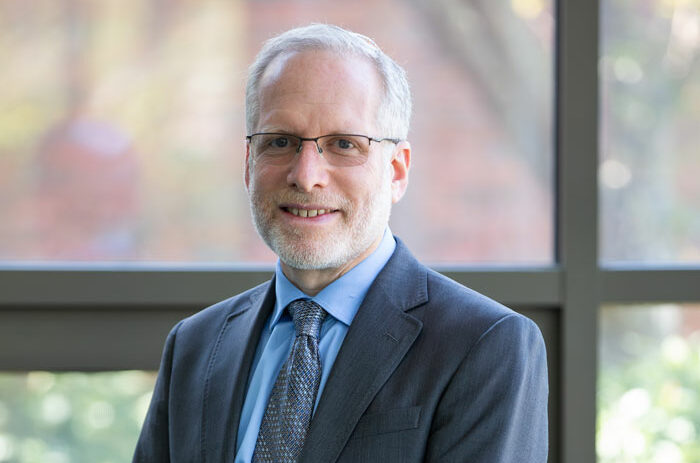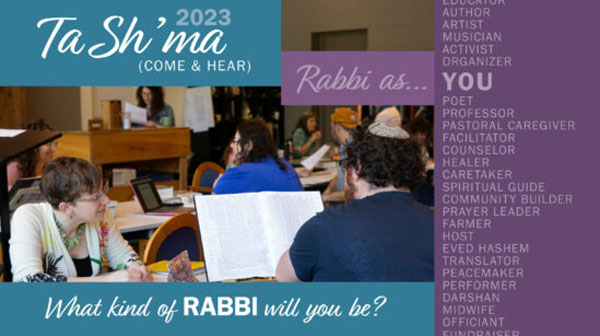Jewish learning A Rosh Hodesh Elul Message from Dean Rabbi Justin David

I have joined in the chorus of countless rabbis over the decades who have said, “Judaism takes work. The rewards of religious life come through ongoing learning, practice, and commitment. An expansive spiritual consciousness doesn’t form quickly or easily, but emerges gradually over time, and then perhaps only in glimpses.”
Mostly, I have found this line of thinking to be true. But then I notice how each year Rosh Hodesh Elul descends on me and brings me into a deeper, and more spacious spiritual landscape. I can’t account for why this happens. I do nothing extraordinary in my ritual or spiritual practice. True, Rosh Hodesh Elul for rabbis means a rush of intense preparation for the Chagim, but I began to treasure Elul long before I became a rabbi, in the years even before rabbinical school.
There is much in our tradition to suggest, contrary to many of the rewards of Jewish practice, that Rosh Chodesh Elul graces us not through any act of our own but as part of the inherent rhythm of life.
In the closing chapter of Tractate Ta’anit of the Babylonian Talmud, the rabbis show us how an inner impulse toward love, reflected in the natural world, brings us to the threshold of Elul. Why, the rabbis ask, do we have Tu B’Av, the date of one of two communal courtship rituals in the ancient world, less than a week after Tisha B’Av, the day of collective reckoning and mourning? Their answer is notable for many reasons, not the least of which is that it does not correspond to any special human activity. Unlike the progression from Sukkot to Sh’mini Atzeret, there are no special sacrifices of other mitzvot that we perform. Unlike the buildup from Pesach to Shavuot, we do not collect any grain for wave offerings, set aside our first fruits, or even prepare ourselves to receive Torah anew.
Instead, we align ourselves with the rhythms of nature. According to the rabbis of the Talmud, the summer heat reaches its peak on the ninth of Av. From there, the days become cooler, the intensity of the sun easing as the days grow shorter. The air becomes thicker with greater morning dew, to the point where the woodchoppers cease cutting down trees to feed the eternal flame in the Temple—the wood is too wet.
This late summer, earth-generated nechama—here represented by the harbingers of a new season of growth—ushers us to Elul. The changes in the world imply a series of promises. Whatever the struggles and pain of the Jewish people and humanity, we have inherent reason to anticipate something new. Whatever the personal suffering we have experienced, we are entitled to new sources of relief and healing.
And I would add, especially in the context of steady and dramatic change to our fragile world, this season invites us to embody a vision of the life force that emerges from and sustains all.
This visionary experience is a gift. One that compels us to respond with loving devotion and constancy, toward each other, across cultures and societies, embracing the planet and its creatures.
Wishing you all a deepening Elul and in a short time, a sweet Shanah Tovah,
Justin
Learn more about Hebrew College’s Rabbinical School and our upcoming ordination open house, Ta Sh’ma (Come & Hear) on Nov. 13 (in–person) and Nov 19 (online).


